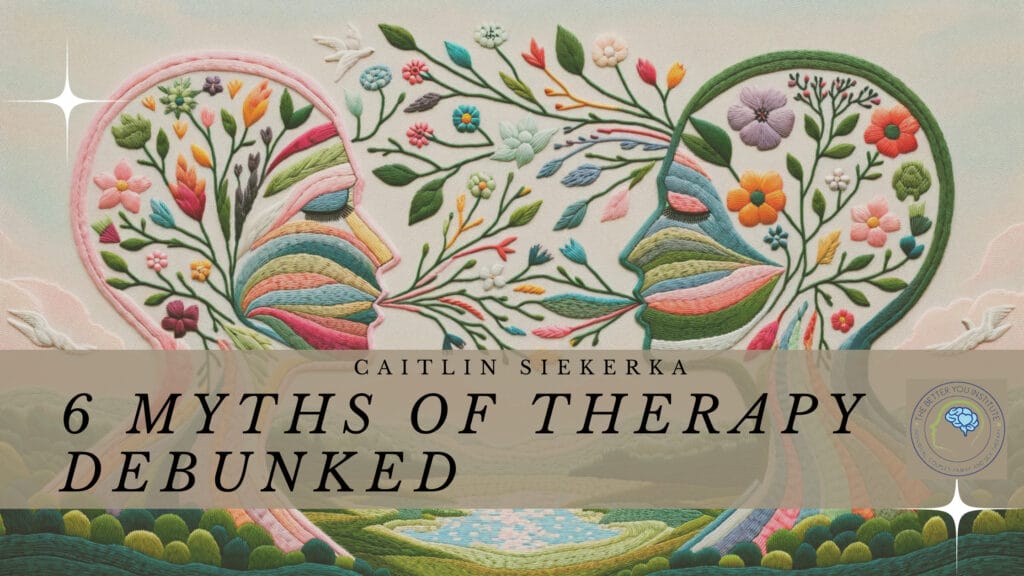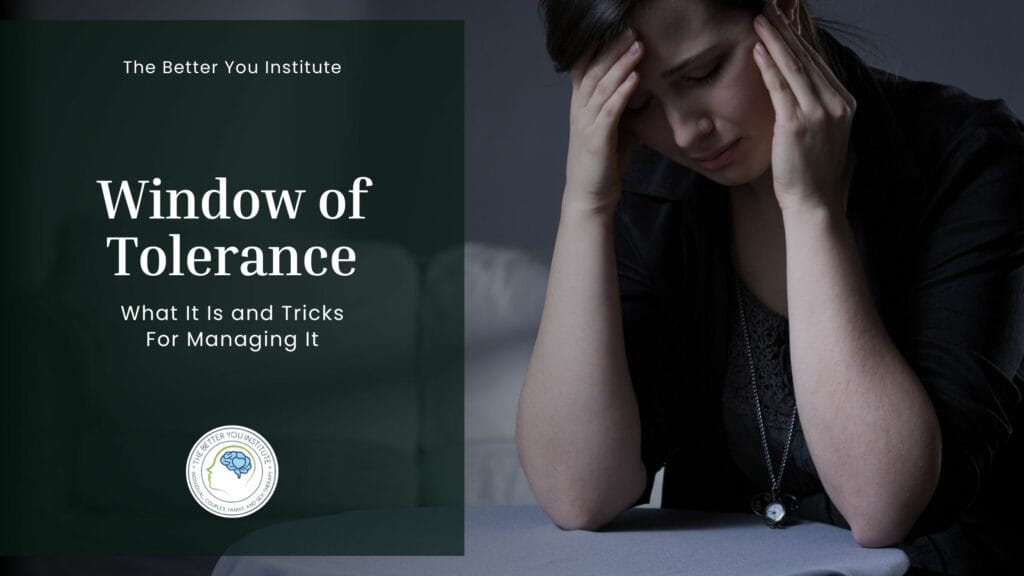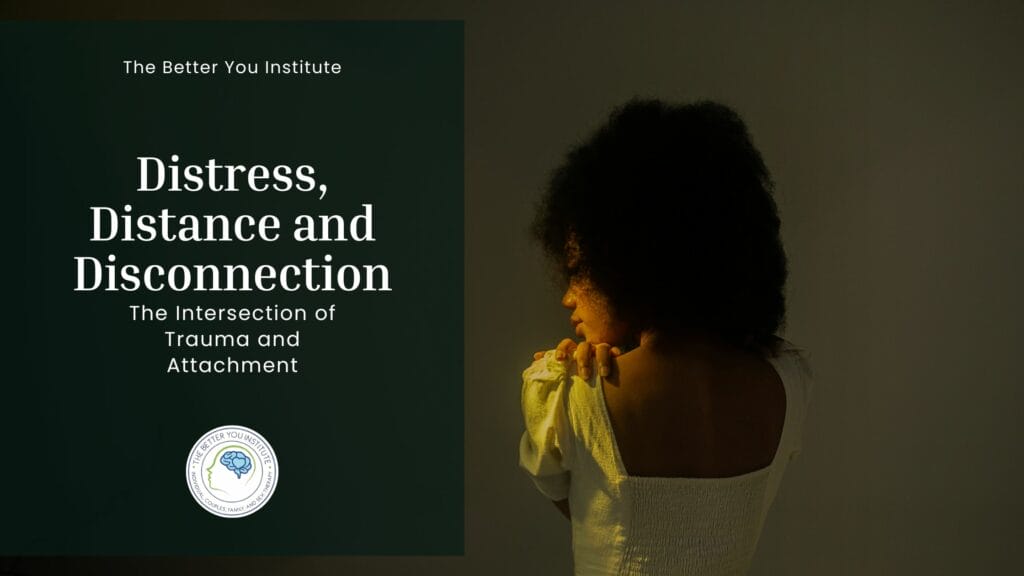Why should I go to therapy?
Therapy offers a safe, confidential space to explore and address emotional, psychological, or behavioral challenges. A therapist provides unbiased support, tools, and coping strategies tailored to your unique needs. It can lead to improved mental health, self-awareness, resilience, enhancing relationships and overall well-being. Seeking therapy is a proactive step toward personal growth and a happier, more fulfilling life.
What is therapy actually for?
Therapy can be used to address various issues or concerns, from mental health conditions like anxiety and depression to life challenges, trauma, and relationship difficulties. There is no one size fits all for how therapy can work. You may have asked yourself “How helpful therapy can really be?” Or “I don’t really need it if I’m only a little sad right now?” Certain myths of therapy may have swayed you away from actually engaging in this powerful experience. Continue reading below to learn more about the myths of therapy debunked.
6 Myths of Therapy
Table of Contents
Only crazy people go to therapy
Have you heard this before? Maybe it was echoed on a television show, a movie, or by a family member during your lifetime. It wasn’t too long ago (early-mid 1900s) that people deemed “crazy” or “mentally ill” were given lobotomies as a form of psychiatric treatment, which we now know was not only extremely harmful but very ineffective. Women experiencing emotional distress, anxiety, or symptoms deemed inexplicable were labeled as “hysterical”. We have an extensive history of resorting to negative and ineffective treatments around being “crazy” and continuing this label and these myths of therapy will just repeat our past instead of supporting effective and helpful treatments.
That being said, thinking only crazy people go to therapy is a very harmful label of a person and a wildly inaccurate representation of therapy. Therapy is a space for everyone and anyone to attend for many reasons or presenting concerns or issues. Although the insurance industry would want you to believe that you need a diagnosis to get treatment, this is simply not true. Therapy can be used for those suffering from depression, anxiety, post-traumatic stress disorder, or other clinical diagnoses. Therapy can also be used for people who just don’t feel satisfied with life, want more from life, have relational issues, want to learn how to be more assertive, or align themselves with their values better. None of these topics qualify for a clinical diagnosis per say but do render you fit for using therapy as a tool to reach your goals. Indeed, therapy can include an array of topics from depression or anxiety, trauma, grief, social or intimate relationship issues, job stressors, communication skill concerns, wanting to increase self-esteem or confidence, learning to navigate stress better, and so much more. Therapy is not a one-size-fits-all model.
Therapy is for when you’re at rock bottom
Many people believe you only go to therapy when you are at your lowest. Unfortunately, this reactive way of looking at therapy is part of a systemic issue within our medical systems driven mostly by money. If you build and maintain a healthy lifestyle and overall well-being, there is no need for medical services, and therefore there is no money. What many people don’t know is that therapy is available for any stage of your life, not just the worst parts of it. In fact, using therapy as a proactive tool to maintain the life you already feel good in or building on it to be the best can have immaculate results for your life!
Therapy can be a preventative support system to help you learn how to increase helpful coping skills, social support, new ways to sit with your emotions, and so much more. When these skills are worked on in a neutral state in therapy versus just at rock bottom moments, you can learn to process, cope, and ultimately tolerate the events better. Whereas, if you are trying to learn new skills while in a heightened state of arousal and overwhelm, these skills may be harder to establish. Also, it may be more challenging to build a safe and effective relationship with a therapist when you are coming in at your lowest because you may not be in a place to be as open or receptive to helpful treatment.
Therapy is just talking, and it’s all the same
While talk therapy is one type of therapy, it’s not the only kind, so don’t let the myths of therapy deter you. You may be envisioning a person laying on a couch gushing out all their thoughts and dreams based on Freud’s work, but that’s not what therapy always looks like. Different therapy models and interventions have been around for years and may use variations of talk therapy, somatic therapy (more body-focused), trauma interventions, and more. Cognitive Behavioral Therapy (CBT) is used to help you better understand how your thoughts, feelings, and behaviors are connected and ways to help reframe unhelpful thinking patterns. Dialectical Behavioral Therapy (DBT) can assist with coping with intense emotional distress and increasing healthy interpersonal relationships. With these different models and approaches come activities like having regular take-home assignments to practice, using meditations in sessions, or using physical relaxation techniques.
I don’t need therapy, I can just talk to my friends
Friends are so supportive and can offer very real and helpful feedback in many situations. However, friends rarely can pick up on specific patterns, self-talk cycles, or connections and understandings to statistical data that a trained therapist can. A therapist will also work to provide you with a non-judgmental or biased approach in situations where friends may not be able to. And in some cases, you might not feel ready to tell a friend certain things for different reasons but one may be that it’s possible that friend may have trouble keeping it to themselves or holding space for you in the way that you need right now. A therapist is ethically and legally obligated to keep what you say private (with the exception of threats of serious harm to yourself or someone else or danger to a child). Clinicians are trained to set their stuff aside to be able to create safety and hold space for you in whatever you bring into the room with them. Friends may also give you unsolicited advice, where a therapist will approach topics and issues from a trained perspective giving you what you need to learn and grow.
I’ll have to be in therapy forever
Therapy will look different for everyone. Therapy is for you to take from it what you want, it doesn’t be forever if you don’t want it to. Some people do stay in therapy long-term because it’s effective for them and their treatment. Others may have shorter-term goals that take a few months only. Some people may return to therapy multiple times in life as they go through new life transitions or have different events happen. There is no one right way of therapy. As you go through therapy, new topics or issues may arise either from your exploration in therapy or different life events. As such, your goals may shift throughout your therapy experience, which can also impact the length of therapy. Your therapist should also be checking in with you on how the sessions are going, where progress is at, and when discharge from treatment may be appropriate. These conversations help both you the client and the therapist, assess how goals and treatment are going, any new needs or goals to be worked on, and highlight growth made.
Therapy is too expensive
Therapy is an investment in yourself, much like going to the gym or eating nutritious foods. As stated above, therapy does not have to be a forever investment. However, if you spend the money and time emotionally investing in this process, you will feel better and be able to manage your life easier. Feeling confident, organized, and in tune with yourself is priceless. You will open many doors for yourself just by feeling more balanced and having control of your health and well-being. Think long-term goals with short-term investment.
Many therapists understand the frustration and difficulty that comes with finding a good therapist that fits your needs. It can be hard to find affordable therapy, but that doesn’t mean it’s unavailable. There are a lot of therapists who provide sliding scale or fee reduction options for clients. Many agencies bring on interns or pre-licensed clinicians who charge less because they are still in training. Yet, these clinicians are heavily supervised, thus giving you two therapists for the price of one! Most agencies will help you navigate the in-network and out of network insurance reimbursement you can receive for treatment as well. Lastly, different non-profit organizations or community mental health agencies also offer lower-fee therapy options. Don’t dismiss your needs or therapy interest without asking providers for options.
Next steps
Now that you have a better understanding of the facts of therapy versus the myths of therapy, take some time to reflect on what you can do next to support yourself. Think about any therapy myths you have heard or learned to believe and start to challenge some of them as you read in this article. Therapy can be a supportive, empowering, reflective, beautiful life changing experience. You deserve that space. If you are interested in learning more about therapy and what we can offer you at The Better You Institute, please call us today at 267-495-4951 to set up an appointment with one of our trained therapists.
Meet The Author:

Caitlin Siekerka
Licensed Professional Counselor
Caitlin Siekerka, LPC, a Licensed Professional Counselor in Pennsylvania and New Jersey, is dedicated to guiding individuals on their path to finding meaning and purpose. She uses a compassionate, empathetic approach in therapy, helping clients achieve balance and develop coping skills. Specializing in depression, anxiety, self-esteem issues, bipolar disorder, grief, trauma, life transitions, and substance use, Caitlin offers personalized therapy using techniques like CBT, DBT, and mindfulness. An LGBTQ+ ally, she creates a safe space for growth and exploration in Philadelphia. Caitlin holds a master’s in Counseling Psychology from Rosemont College, continually educating herself to provide the best support.
Learn more about Caitlin Siekerka ⇒







